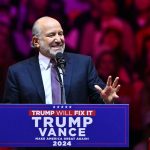With Luiz Inacio “Lula” da Silva’s narrow victory over president Jair Bolsonaro in Brazil—the two-time former president defeated the incumbent by a 1.8 percent margin (50.49 to 49.1)—the Latin American left has completed its strategic dominance over the region’s seven largest countries.
In the 2000s, much was made of Latin America’s so-called “Pink Tide,” which began with Hugo Chávez’s first electoral victory in Venezuela (1998) and da Silva’s first term in Brazil (2002–2006). There followed an unprecedented rise of left-wing governments across the region. However, there were still important holdouts at the time; Mexico and Colombia didn’t veer left at all; Chile maintained its post-Pinochet social democracy; Peru’s original “Pink Tider,” Ollanta Humala, initially scared the markets in 2011 but proved to be mostly moderate in power.
By late 2022, however, hard leftists—often in cahoots with local communist parties—had handily won the last elections in each of these countries and in Argentina, which returned to Peronist Kirchnerism in 2019. Bolsonaro was the last right-winger standing prior to Sunday’s election.
His brand of politics was also unique. Argentina’s Mauricio Macri, Chile’s Sebastián Piñera, and Colombia’s Iván Duque were nominally center-right presidents who failed to take the tough, necessary measures to liberalize their countries’ economies. They were also in thrall to the progressive media; Macri’s style was dubbed “Kirchnerism with good manners”; Duque resisted being identified with the right; Piñera even sacrificed Chile’s constitution to appease violent street protesters. The famously blunt Bolsonaro, on the other hand, had no time for niceties as he waged an all-out culture war that made him the global left’s latest bête noire.
Economically, Bolsonaro did attempt to free Brazil’s notoriously bureaucratic economy alongside his finance minister, University of Chicago-trained economist Paulo Guedes. Most notably, they privatized Eletrobras, a state-owned utilities company, and took preliminary steps to sell the much larger Petrobras, an oil concern in which the Brazilian state holds a 60 percent stake. They also allowed savers to hold dollar-denominated bank accounts, introduced the “Economic Freedom Act” to reduce interventionism, and took other measures to simplify business operations.
In 2020, the Covid shock struck Brazil particularly hard, but the country’s economy is showing encouraging signs of revival. With tailwinds as an exporter of both food and energy, Brazil’s economy has performed relatively well in 2022, with nearly 3 percent GDP growth expected for the year. Amid global stock market carnage, the Bovespa index (IBOVESPA) was up over 10 percent year-to-date prior to the election. Petrobras’s shares were up 32 percent in the Sao Paulo stock exchange year to date nine days before the election, but have plunged over 20 percent since then, with a $4 billion decrease in market cap after da Silva won the election.
So why did the economy fail to save Bolsonaro’s presidency? Economic growth helped him strengthen his political base in Brazil’s industrious Southeast and in the interior, agricultural regions. But his governing style repelled enough urban, so-called centrist voters to push da Silva over the finish line, even if just barely. True to form, Bolsonaro had not conceded nearly 48 hours after his electoral defeat, thus sparking worries regarding his previous threats not to recognize the election’s results if he lost. His officials, however, seem to have begun the transition.
As elsewhere, wokeism is out of control in Brazil—and this purportedly helped Bolsonaro—but it’s quite another thing to, say, celebrate the military regimes of the 1960s, or to call into question the validity of Brazilian democracy. For his part, da Silva managed to portray himself as moderate once he had gained the backing of several high-profile politicians not associated with the political left. These included his former rival in the 2006 presidential election, Geraldo Alckmin, who became da Silva’s vice presidential nominee.
Bolsonaro remained combative throughout his presidency, and his approval ratings remained low. According to Brazilian newspaper Folha de São Paulo, Bolsonaro’s campaign strategists attribute his loss to insufficient support in his Southeastern strongholds of São Paulo, Brazil’s largest city, and Minas Gerais, where Belo Horizonte is the nation’s third-largest metropolitan area. Although Bolsonaro won both states, Brazil’s most populous, he needed to do so by wider margins in order to offset da Silva’s overwhelming support in the poorer regions of the Northeast. Despite Bolsonaro’s incumbent advantage and the vast amounts of Brazilian taxpayer money he spent to mobilize voters, he became the first sitting president to lose a reelection campaign since the end of the dictatorship in 1985.
Still, Bolsonaro’s supporters will point to the narrowness of his defeat as a victory of sorts. Not only did he face the wrath of the intelligentsia and a hostile press, both locally and globally; even the pollsters hurt his cause by grossly underestimating his support prior the election’s first round on October 2, when some forecasted that da Silva would win outright with over 50 percent of the vote.
By supporting da Silva, the Brazilian left desperately rallied around a candidate who was in jail as recently as 2019 due to corruption charges. In the middle of the last decade, da Silva’s Workers’ Party (PT) was at the epicenter of the Odebrecht scandal, which shook politics in Brazil and much of Latin America. As I wrote recently, the press gave da Silva a free pass by stressing the former trade union leader’s political comeback. However, he was only able to run for president because a Supreme Court justice with links to the PT dismissed two prior convictions on procedural grounds. Had the still popular da Silva not slipped through the cracks of Brazil’s criminal justice system, Bolsonaro might have won a second term.
Despite Bolsonaro’s defeat, his broader movement emerges stronger from this year’s elections. The president’s allies control both houses of Congress—his son, Flávio Bolsonaro, leads the largest party in the federal senate—and 13 out of 27 elected governors are Bolsonaristas (whereas only 10 supported da Silva). The question now is whether Bolsonaro’s coalition can remain in place once the man himself is out of power.
As in the early 2000s, da Silva will govern Brazil in the midst of a global upswing in commodity prices. The last time around, his tax-and-spend policies during the boom set up the subsequent bust, with a deep recession that lasted from 2014 to 2016 and paved the way for Bolsonaro’s rise to power. Nevertheless, da Silva managed to get through this year’s campaign with a surprisingly ambiguous economic program, although there will certainly be greater fuel subsidies and renewed interventionism within a partially liberalized Petrobras. As he told an interviewer last March, “we don’t discuss economic policies before winning the elections. First you have to win the elections.” It is little wonder that a large portion of Brazil’s economically minded voters decided to stick with Bolsonaro. His defeat, however, will have regional repercussions.
In 1990, da Silva and Fidel Castro founded the São Paulo Forum, a bloc of left-wing political parties that vowed to “wage a popular and anti-imperialist struggle” just when “neoliberalism” seemed to reign supreme. The bloc’s most ardent representative in the following decades, Hugo Chávez, counted with then-president da Silva’s outspoken support as he dismantled Venezuela’s republican institutions. In early 2023, when da Silva becomes the first Brazilian president to serve a third term, the São Paulo Forum’s member parties will be in power in all but a handful South American countries. Yesterday’s anti-imperialists are today’s new ruling class, and 77-year-old da Silva has become Castro’s successor as their leading gerontocrat.
The post With Lula’s Win in Brazil, the Left Dominates Latin America appeared first on Reason.com.







